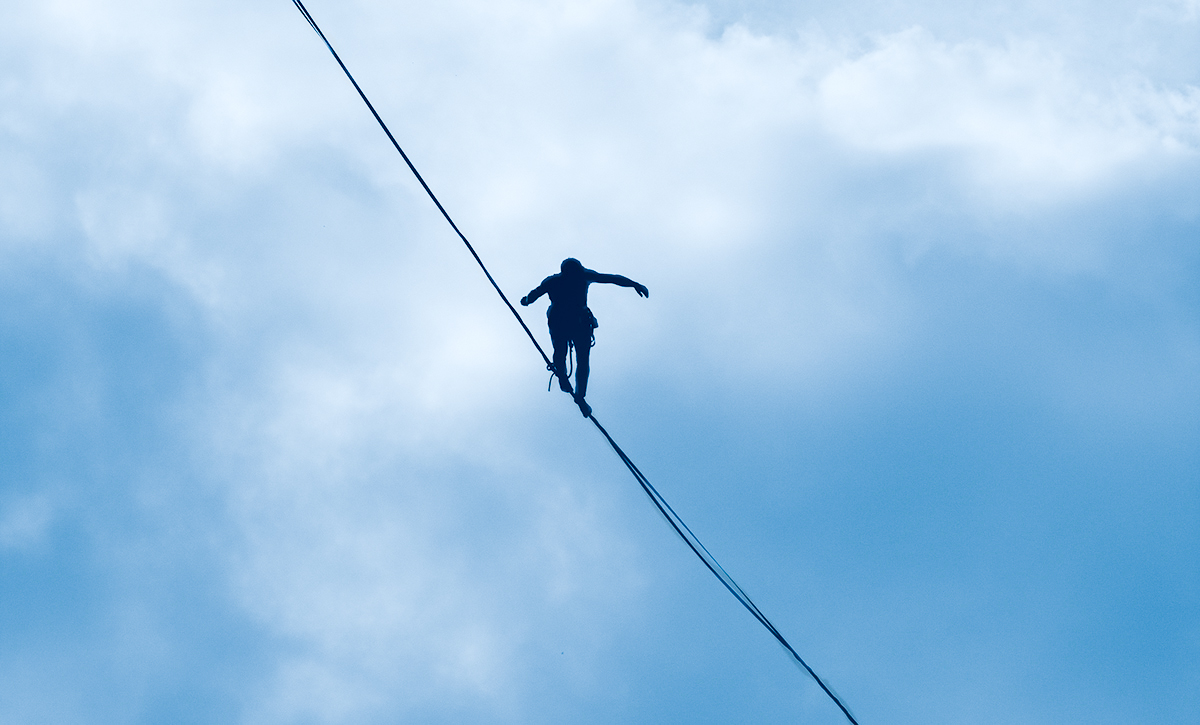The webinar was hosted by Reetta Räty, professor of practice in the field of journalism at the Tampere University. The keynote speaker was Laura Haapala, doctoral researcher at the University of Helsinki. The webinar also included a panel discussion with the CEO of the translation agency IDE Oy Liisa Laakso-Tammisto, composer Sami Klemola and a leading expert at Akava Anu Tuovinen.
Work is changing
In her keynote presentation titled “Why is work changing – do the safety networks work?”, Laura Haapala talked about the current situation of self-employed people and its background.
Haapala listed global megatrends that have, for their part, led to the increase in self-employment. They include technological development, advancing globalisation, ecological preconditions, demographic changes and changing views about work. The job market and professional constructs are in a constant flux. According to estimations, up to 65 per cent of people born in the 2010s will be employed in work that does not even exist today.
Entrepreneurial competence is a necessity
For her research, Haapala interviewed self-employed people. They see many good sides in their situation. In entrepreneurial work, you can avoid many downsides of salaried employment: for example, you do not need to tolerate unpleasant colleagues or fear lay-offs. On the other hand, negative sides of self-employment that are present especially in the lives of newly self-employed people, include the periodic nature of business operations, financial insecurity and a weak negotiation position.
Haapala also told us about the requirements of new work. According to her, the important skills required in practically any work include entrepreneurial skills, recognising and commercialising your competencies as well as marketing and sales skills. Precisely these areas are at the core of the PIRSSI project! In Haapala’s view, in certain industries, entrepreneurial competence is practically a mandatory civic skill.
You should earn your security
In her presentation, Laura Haapala stated that, in entrepreneurial work, social security is unpredictable, complex and weak. This was confirmed by the panellists in the second half of the webinar. They emphasised that the best solution to self-employed people’s challenges is sufficient invoicing that also covers the expenses of various insurance policies and the necessary vacation time. Principals and consumers should understand that the prices of services or products also include these expenses.
Anu Tuovinen spoke about Akava’s principles in improving the working conditions of self-employed people. Out of Akava’s members, more than 30,000 are entrepreneurs, most of them self-employed. Tuovinen told that policy-makers are receptive to tackling the challenges of new work, but the problem lies with each new government and its programme starting the reforms from the beginning in a way, although, to some extent, considering the observations in earlier reports and consultative documents.
Experience builds up confidence
Laakso-Tammisto has extensive experience of entrepreneurship, beginning from the 1980s, and she has seen many things change radically. As an example, she mentioned the current bidding competition procedures, which she called “obscene”. She emphasised that self-employed people need to understand their position in the job market.
Laakso-Tammisto had acquainted herself with her industry in salaried work before entrepreneurship, and it was a factor that encouraged her to make the decision to become an entrepreneur. According to Akava’s surveys, many members had gained experience of working life and salaried work before becoming an entrepreneur, and that made them confident about their subject matter competence.
Sami Klemola stated that, in the cultural field, there is no real choice as for whether to become an employee or self-employed because there is virtually no salaried work in the industry. Income is often gathered from various work assignments, which makes the social security arrangements even more complicated. Klemola also spoke about common challenges in creative work and the time-consuming nature of the work: how could you mark thinking time in your calendar, let alone include it in an invoice to a customer?
Networks are valuable
The panel discussion also addressed the mental security network needed to maintain your health and well-being. The panellists highlighted the importance of both professional and personal networks. It is smart to start building your networks already during your studies. Participation in professional associations, for example, can produce, among other benefits, valuable contacts. The most important thing is to stay active, go out and meet people. Like anyone else, sole entrepreneurs should not think that they have to face everything alone.
***
Text: Antti Haapio and Miia Santalahti
English translation: Mira Kainulainen
Photo: Marcelo Moreira, Pexels



